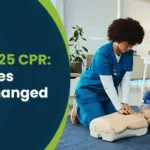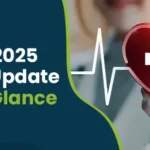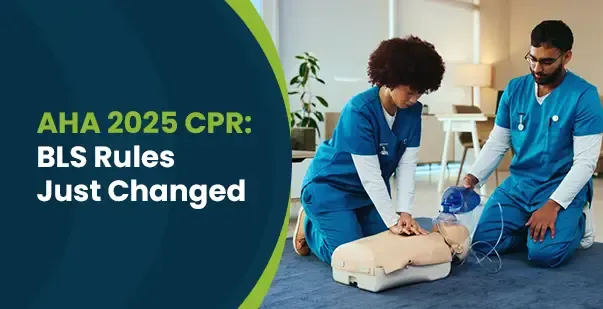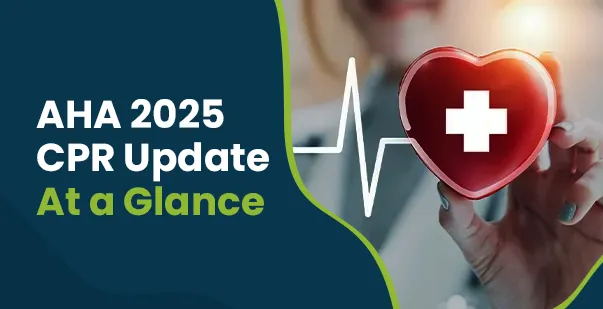Food poisoning is a common but unpleasant condition that can disrupt daily life. It happens when you consume food or drinks contaminated with harmful bacteria, viruses, or parasites. Depending on the type of contaminant and your overall health, the symptoms can range from mild discomfort to severe illness. According to the World Health Organization (WHO), an estimated 600 million people—nearly 1 in 10 worldwide—fall ill after eating contaminated food each year.
Understanding the signs and symptoms of food poisoning is crucial because it helps you recognize the problem early and seek appropriate treatment. Knowing what to do in case of food poisoning can also prevent complications and help you recover faster.
In this guide, we’ll explore the key aspects of food poisoning: what it is, how to identify it, and the best ways to treat and prevent it. Whether you’re dealing with a mild case or want to avoid getting sick, this information will help you stay informed and prepared.
Understanding Food Poisoning
Food poisoning is a condition caused by eating contaminated food or drinking contaminated liquids. It can make you feel very ill, causing symptoms like stomach cramps, nausea, and diarrhea. While it’s often uncomfortable, most people recover within a few days with proper care.
Food poisoning usually happens when food is contaminated with harmful microorganisms. This can occur at any stage, from the farm where food is grown to the kitchen where it’s prepared. Common ways contamination occurs include improper food handling, undercooking, or cross-contamination between raw and cooked foods.
The main reasons behind food poisoning are bacteria, viruses, and parasites. Some common bacteria include Salmonella and E. coli, while viruses like norovirus and parasites such as Giardia are also frequent causes. Each of these pathogens can lead to different symptoms and may require different treatment approaches. Understanding these causes can help you take steps to avoid getting sick and know what to do if you do become ill.
Signs of Food Poisoning
Food poisoning can manifest with a variety of symptoms, which often start within hours to days after eating contaminated food. Recognizing these signs of food poisoning can help you manage the situation better and determine when to get medical help.
Common Symptoms:
Some of the most common symptoms of food poisoning are as follows:
- Nausea: This is a strong feeling of sickness in your stomach that may lead to vomiting. It often starts shortly after eating contaminated food and can be quite uncomfortable.
- Vomiting: Throwing up can occur as your body’s way of expelling harmful substances. This can lead to dehydration, especially if it’s frequent or severe.
- Diarrhea: Frequent, watery bowel movements are common with food poisoning. This can also contribute to dehydration and may be accompanied by stomach cramps.
- Abdominal Pain: Cramping or discomfort in the stomach area is a frequent symptom. It may feel like a sharp, dull, or cramping pain.
- Fever: A mild fever often accompanies food poisoning, indicating that your body is fighting off the infection. The fever might be low-grade or slightly elevated.
- Food Allergies: Food allergies occur when the immune system mistakenly identifies a food as harmful. Recognizing these symptoms can help you respond quickly and seek appropriate care.
Severe Symptoms:
Severe symptoms caused due to food poisoning are listed below:
- Persistent High Fever: If your fever exceeds 101.5°F (38.6°C) and lasts for more than a couple of days, it could be a sign of a more serious infection that requires medical attention.
- Prolonged Vomiting: When vomiting continues for more than a day or prevents you from keeping fluids down, it increases your risk of dehydration and may require medical intervention.
- Dehydration: Symptoms include extreme thirst, dry mouth, reduced urine output, and feeling dizzy or lightheaded. Dehydration occurs because your body loses fluids faster than it can replace them.
- Blood in Stool: Black, tarry stools or visible blood can indicate a serious infection or damage to the digestive tract. This symptom needs prompt medical evaluation.
If you experience any of these severe symptoms or if the common symptoms persist for more than a couple of days, it’s important to seek medical help. Early intervention can prevent complications and aid in a faster recovery.
Immediate Steps: What to Do for Food Poisoning
When dealing with food poisoning, taking the right steps can make a significant difference in your recovery. Here’s a detailed guide on how to get rid of food poisoning right after you start feeling ill.
Initial Actions:
- When to See a Doctor: If you experience severe symptoms like a high fever over 101.5°F (38.6°C), prolonged vomiting that lasts more than 24 hours, or blood in your stool or vomit, you should seek medical attention immediately. These symptoms can indicate a more serious condition that requires professional treatment.
- Self-Care Tips: For less severe cases, start by giving your digestive system a break. Avoid solid foods for the first 24 hours. Stick to clear liquids like water, broth, or herbal teas to stay hydrated. Once vomiting and diarrhea decrease, gradually introduce bland, easy-to-digest foods such as toast, plain rice, or bananas. Avoid spicy, fatty, or dairy foods until you’re fully recovered.
Hydration:
- Importance of Fluids: Staying hydrated is crucial because vomiting and diarrhea cause your body to lose fluids quickly. Drink small sips of water frequently throughout the day. If you’re unable to keep water down, try sipping on oral rehydration solutions or clear broths.
- Rehydration Solutions: Oral rehydration solutions (ORS) contain a balanced mix of electrolytes and sugars that help replace lost fluids and minerals more effectively than plain water. You can find these solutions at most pharmacies. Alternatively, you can make a simple homemade rehydration solution by mixing 1/2 teaspoon of salt, 6 teaspoons of sugar, and 1 liter of clean water.
Rest:
- Importance of Rest: Rest is essential for your body to heal from food poisoning. Your body needs extra energy to fight off the infection and repair itself. Avoid strenuous activities and permit yourself to rest as much as needed.
- Gradual Return to Activity: As you start to feel better, gradually return to your normal activities. Begin with light tasks and avoid jumping back into heavy exercise or work too soon. Listen to your body and increase activity levels slowly based on how you feel.
By following these steps, you can manage your symptoms effectively and support your recovery process.
Food Poisoning Treatment
Treating food poisoning effectively involves understanding the right medications to use, when to seek medical help, and how to manage symptoms at home. Here’s a guide to food poisoning treatments to help you through the process.
Over-the-Counter Medications
Over-the-counter (OTC) medications can be helpful for managing symptoms like diarrhea and nausea. For diarrhea, medications like loperamide (Imodium) can help slow down bowel movements, but they should only be used if you’re not experiencing a fever or bloody stools. Antacids or anti-nausea medications can help relieve stomach discomfort. However, it’s important to avoid using this food poisoning medication if you suspect a bacterial infection, as it may slow down the process of eliminating toxins from your body.
Prescription Medications
In some cases, prescription medicine for food poisoning may be necessary, especially if your symptoms are severe or persistent. If your doctor suspects a bacterial infection like Salmonella or E. coli, they may prescribe antibiotics. However, antibiotics aren’t effective against viral infections, so they’re only used when a bacterial cause is confirmed. In cases of severe dehydration, a doctor might recommend IV fluids to restore your body’s balance of electrolytes.
Home Remedies
For mild cases of food poisoning, home remedies can be effective in easing symptoms and speeding up recovery. Drinking plenty of fluids, such as water, herbal teas, and clear broths, is essential to prevent dehydration. Ginger tea or peppermint tea can help soothe an upset stomach, while apple cider vinegar, diluted in water, may help reduce nausea. Resting and gradually reintroducing bland foods like toast or crackers can also aid in recovery.
How to Treat Food Poisoning at Home
Treating food poisoning at home focuses on diet adjustments, maintaining hydration, and allowing your body the rest it needs to recover.
Diet Adjustments
When recovering from food poisoning, it’s important to start with bland, easy-to-digest foods. The BRAT diet (Bananas, Rice, Applesauce, Toast) is commonly recommended because these foods are gentle on the stomach and provide essential nutrients without irritating your digestive system. Avoid foods that are spicy, fatty, or dairy-based, as they can worsen symptoms like nausea and diarrhea.
Hydration Solutions
Hydration is key when dealing with food poisoning. In addition to drinking water, you can make homemade oral rehydration solutions to replenish lost fluids and electrolytes. A simple recipe includes mixing 1/2 teaspoon of salt, 6 teaspoons of sugar, and 1 liter of clean water. This solution can help prevent dehydration and keep your body’s electrolyte levels balanced.
Rest and Recovery
Rest is crucial for a full recovery. Your body needs time to heal, so avoid strenuous activities and get plenty of sleep. As your symptoms improve, gradually reintroduce light activities, but don’t rush back to your normal routine too quickly. Listening to your body and allowing yourself time to recover fully will help prevent a relapse.
What to Eat After Food Poisoning
Choosing the right foods after food poisoning can help your digestive system recover and prevent further discomfort.
- Initial Foods: In the first few days after food poisoning, stick to the BRAT diet—Bananas, Rice, Applesauce, and Toast. These foods are easy on the stomach and can help firm up stools without causing further irritation.
- Progressive Foods: As you begin to feel better, you can gradually introduce other bland foods like boiled potatoes, plain oatmeal, or chicken broth. It’s important to take it slow and add one new food at a time to see how your body reacts.
- Foods to Avoid: Initially, avoid foods that are spicy, fatty, or dairy-based, as these can irritate your stomach and prolong symptoms. Also, steer clear of caffeine, alcohol, and highly acidic foods like citrus fruits until you’re fully recovered.
Preventing Food Poisoning
Preventing food poisoning is all about practicing good hygiene and food safety habits in the kitchen. Here’s how:
Food Safety Tips
Proper food handling is crucial to avoid contamination. Always wash your hands before preparing food, and make sure to cook meat, poultry, and eggs to their recommended internal temperatures. Use separate cutting boards for raw meat and other foods to prevent cross-contamination, and store perishable items in the refrigerator promptly.
Hygiene Practices
Good hygiene is an easy but powerful way to prevent food poisoning. Always wash your hands with soap and water before and after handling food, especially raw meat.
Wrapping Up
Food poisoning is a serious problem that can make you feel very sick and disrupt your daily life. It’s important to know how to recognize the signs and understand when to get help from a doctor. Key steps to handling food poisoning include spotting early symptoms, staying hydrated, eating the right foods as you recover, and practicing good food safety and cleanliness to avoid future problems.If you have severe symptoms like a high fever, continuous vomiting, or blood in your stool, you should see a doctor right away. Getting help early can prevent more serious issues and help you get better faster. By staying informed and enrolling in a first aid course, you can handle food poisoning well and reduce the chances of it happening again.









